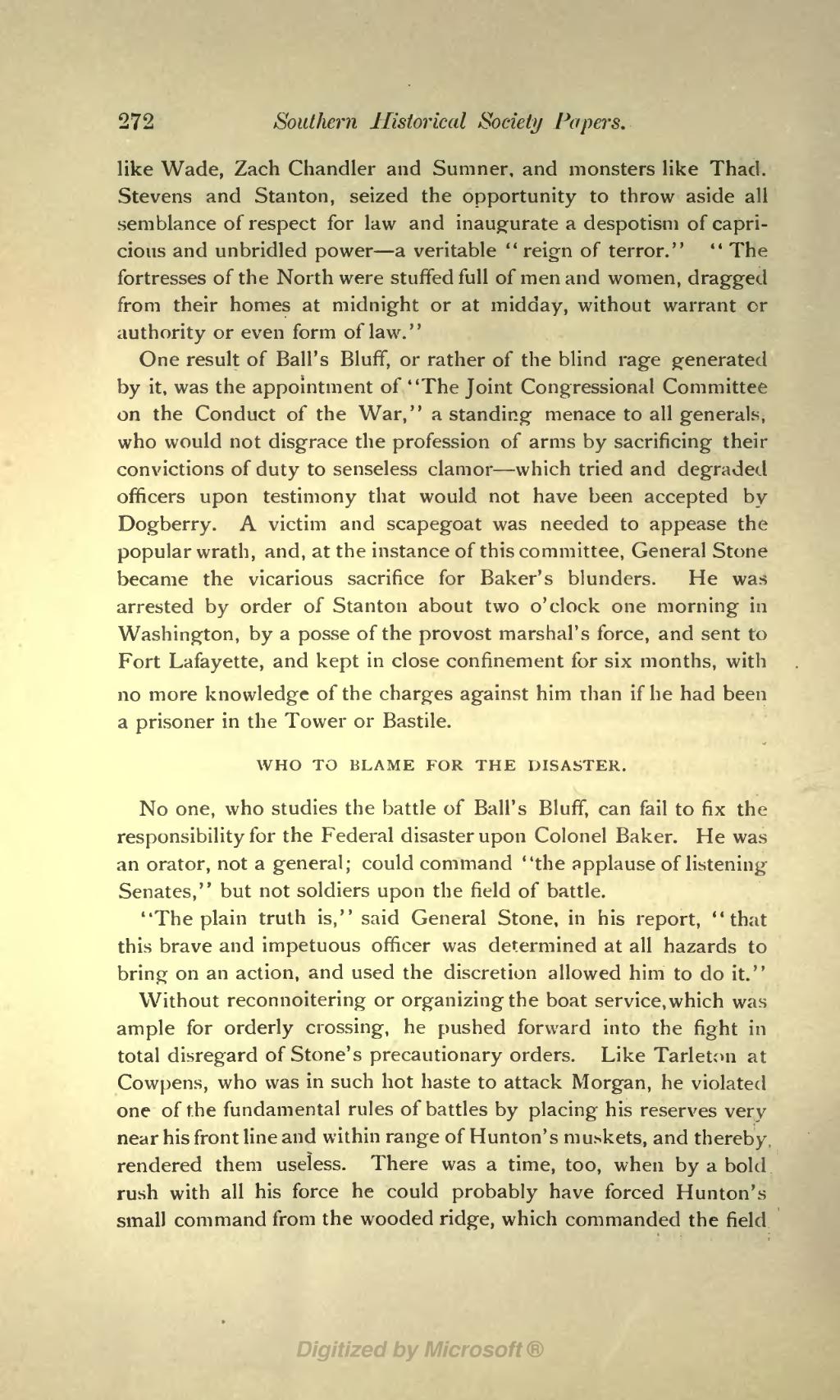272 Southern Historical Society Papers.
like Wade, Zach Chandler and Sumner, and monsters like Thacl. Stevens and Stanton, seized the opportunity to throw aside all semblance of respect for law and inaugurate a despotism of capri- cious and unbridled power a veritable " reign of terror." " The fortresses of the North were stuffed full of men and women, dragged from their homes at midnight or at midday, without warrant or authority or even form of law. "
One result of Ball's Bluff, or rather of the blind rage generated by it, was the appointment of "The Joint Congressional Committee on the Conduct of the War," a standing menace to all generals, who would not disgrace the profession of arms by sacrificing their convictions of duty to senseless clamor which tried and degraded officers upon testimony that would not have been accepted by Dogberry. A victim and scapegoat was needed to appease the popular wrath, and, at the instance of this committee, General Stone became the vicarious sacrifice for Baker's blunders. He was arrested by order of Stanton about two o'clock one morning in Washington, by a posse of the provost marshal's force, and sent to Fort Lafayette, and kept in close confinement for six months, with
no more knowledge of the charges against him than if he had been a prisoner in the Tower or Bastile.
WHO TO BLAME FOR THE DISASTER.
No one, who studies the battle of Ball's Bluff, can fail to fix the responsibility for the Federal disaster upon Colonel Baker. He was an orator, not a general; could command "the applause of listening- Senates, " but not soldiers upon the field of battle.
"The plain truth is," said General Stone, in his report, "that this brave and impetuous officer was determined at all hazards to bring on an action, and used the discretion allowed him to do it."
Without reconnoitering or organizing the boat service, which was ample for orderly crossing, he pushed forward into the fight in total disregard of Stone's precautionary orders. Like Tarleton at Cowpens, who was in such hot haste to attack Morgan, he violated one of the fundamental rules of battles by placing his reserves very near his front line and within range of Hunton's muskets, and thereby, rendered them useless. There was a time, too, when by a bold rush with all his force he could probably have forced Hunton's small command from the wooded ridge, which commanded the field
